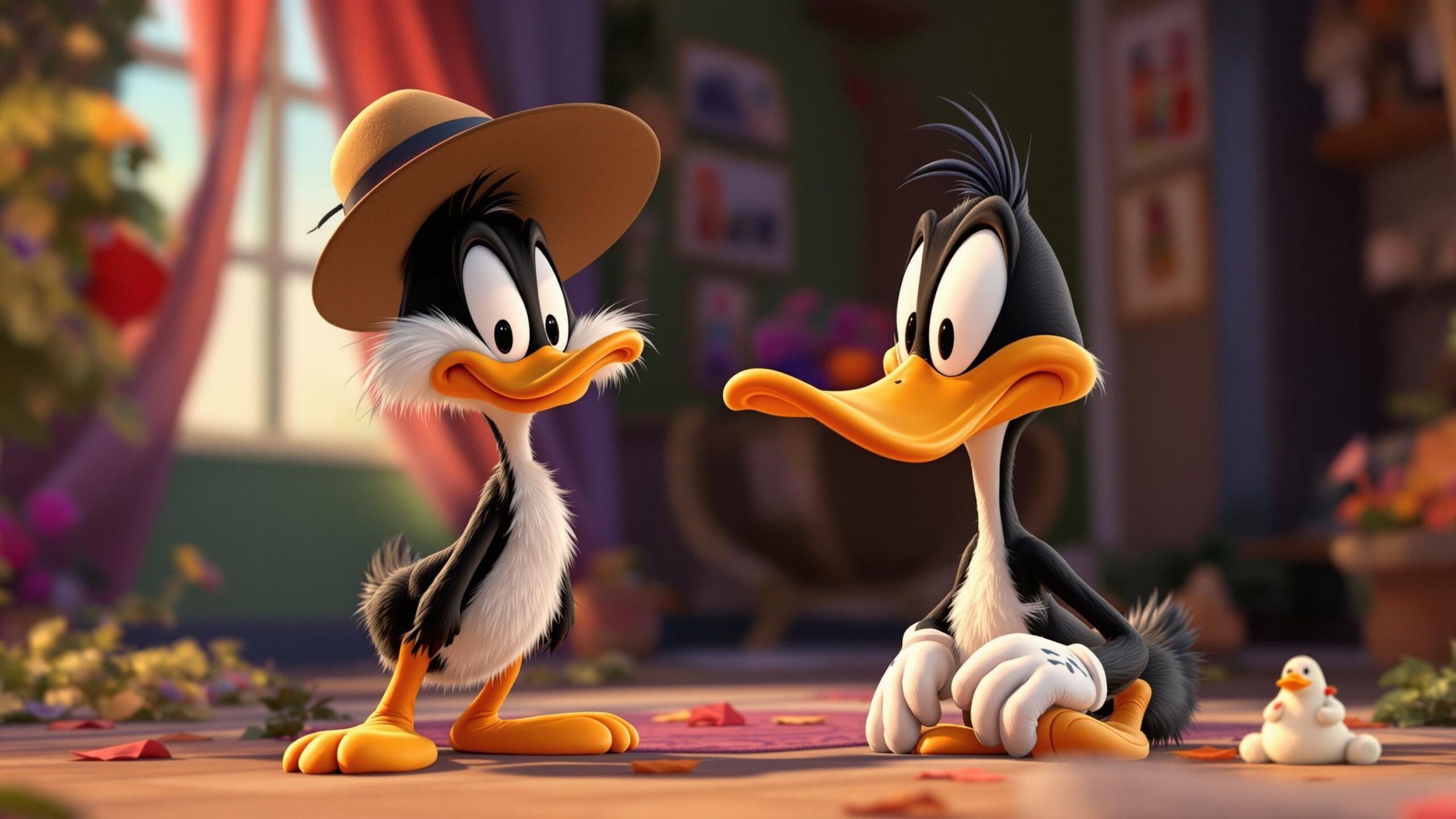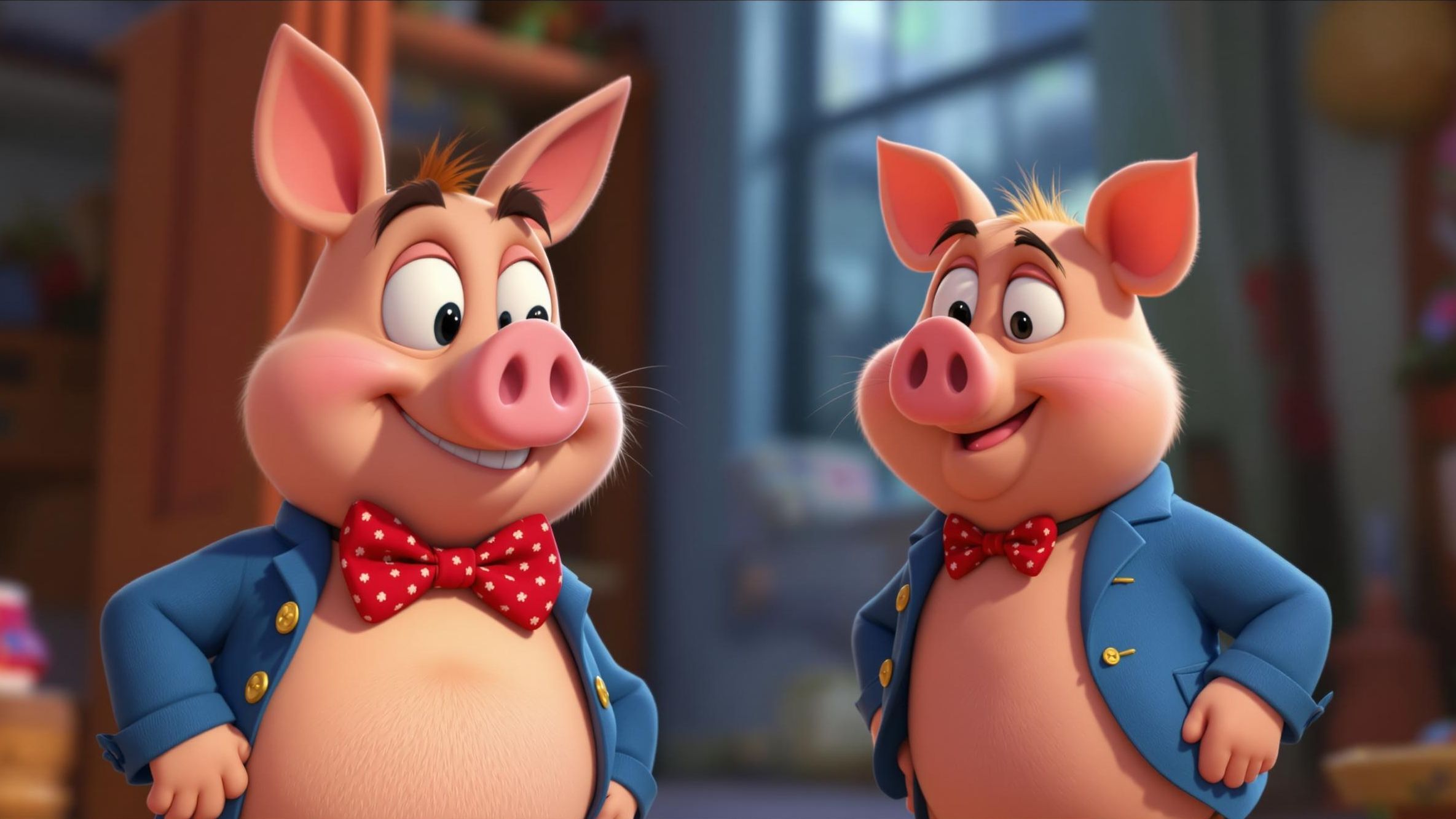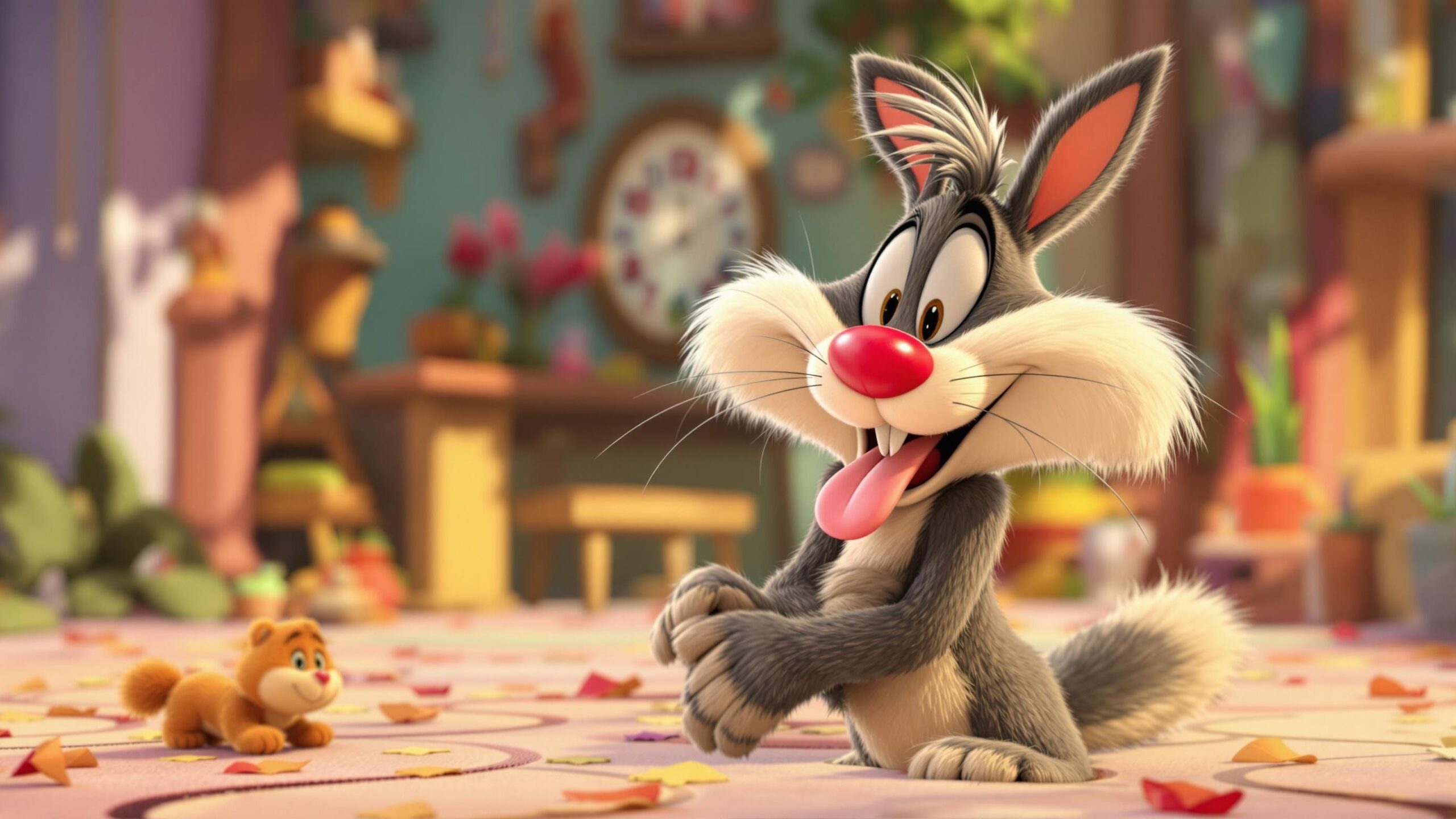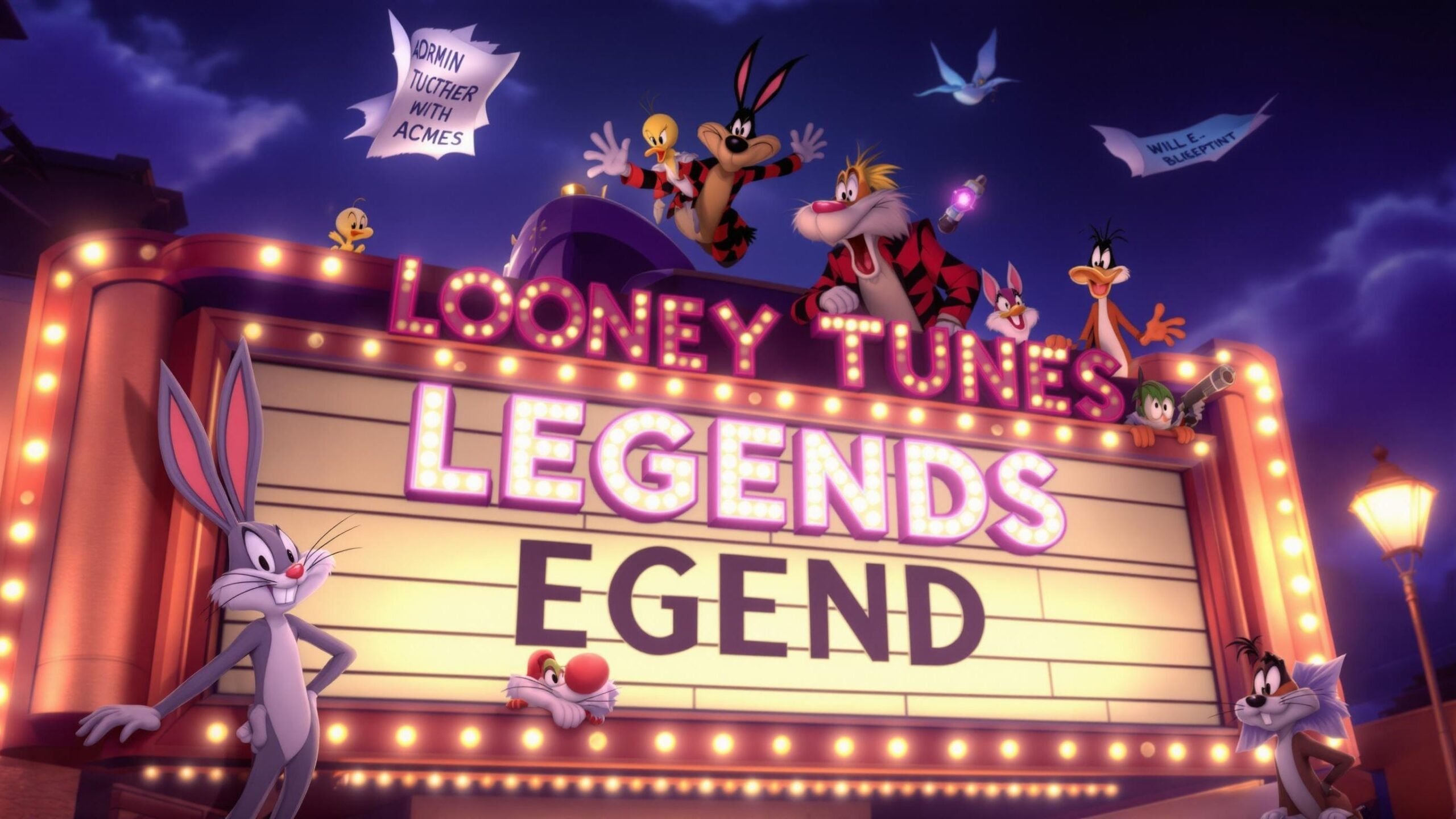He’s loud, he’s unhinged, he’s delightfully over-the-top—and for decades, he’s been standing just a step (or several) behind Bugs Bunny. But what if, just once, Daffy Duck got to be the main event? No more playing sidekick, no more “Duck Season” signs, and definitely no more sharing screen time with that smug rabbit. Just Daffy. Center stage. Lights, camera, disaster. For years, Daffy Duck has been the scene-stealing, chaos-igniting, egomaniacal firecracker of the Looney Tunes lineup. Whether he’s declaring “You’re despicable!” in a frothy rage or flying off the handle at the slightest insult, Daffy is a master of animated unpredictability. And he’s long overdue for a movie where he gets the hero treatment—or at least his version of it. So, let’s dream big. What would a Daffy Duck solo movie actually look like? Well, hold onto your beak. It’s going to be wild, ridiculous, a little existential, and gloriously Daffy.
A Star Is Frustrated
The lights come up, the curtains part, and we find Daffy Duck sitting in a dusty, duck-sized dressing room surrounded by old movie posters—all of them starring someone else. Bugs Bunny’s name is everywhere. Road Runner has a trilogy. Even Tweety has merchandising deals. And Daffy? One forgotten co-lead role in Looney Tunes: Back in Action and a couple of shorts where he gets blown up.
Cue the first musical number: “Where’s My Spotlight?”—a jazzy, showtune-style lament filled with feathers, footlights, and high drama. Daffy, ever the theatrical soul, belts out his frustration while swinging on chandeliers, tripping over lighting rigs, and knocking over camera equipment. The song shifts between comic chaos and heartfelt yearning, with Daffy flashing back to all the times he’s been upstaged by Bugs. It’s part Broadway, part breakdown, and all Duck.
By the time the number ends, Daffy has reached a boiling point. If Hollywood won’t give him the starring role, he’ll make his own movie. He pulls out a dusty film reel labeled “Operation Daffy: The Rise of a Legend,” and declares that this time, it’s his moment to shine. Thus begins the Duckumentary of epic proportions.
Daffy’s Big Pitch
Daffy storms into Warner Bros. headquarters with feathers flying and ego blazing, barging into meetings, hijacking elevators, and cornering every executive in sight. His pitch? A genre-blending, duck-driven, cinematic extravaganza. A spy-thriller-action-romance-sci-fi-musical-comedy with heart, spectacle, and Daffy Duck in every single role. As he bounces around the boardroom, tossing out hand-drawn concept art, costume changes, and impromptu monologues, the execs are visibly shaken.
He ends the pitch by launching himself across the boardroom table via spring-loaded duck boots, landing in a glitter cannon explosion that fills the room with gold sequins and self-confidence. The executives stare in stunned silence. Finally, one overworked producer sighs and mutters, “You know what? Why not.”
Greenlight secured, Daffy races off to assemble his dream team—which, naturally, consists entirely of himself. Directing, writing, composing, stunts, and catering? All Daffy. It’s a one-duck show, and he’s ready for it. Almost.
Lights, Camera, Absolute Chaos
Production begins on “Duck Fiction: A Film by Daffy Duck,” and immediately, it becomes clear that creative control and Daffy Duck should never occupy the same sentence. He casts himself in every role, from suave agent to misunderstood alien prince to jazz pianist with a tragic past. He yells direction through a megaphone he made out of a funnel. He forgets the script, improvises everything, and insists on filming scenes out of order because he “likes to keep the camera crew on their toes.”
The chaos spills across every set. In one scene, Daffy as Agent Ducktor Doomsky launches a rocket-powered briefcase that veers off-course, crashes through a courtroom set, and interrupts a noir detective scene he was supposed to film next week. In another, his musical number “Quack Attack!” goes awry when he activates the pyrotechnics early and sets off the fire sprinklers, soaking the entire dance troupe and causing a pratfall ballet in rubber ducky suits.
Classic Looney Tunes characters attempt to intervene. Porky Pig tries to keep things organized, but Daffy’s directions cause him to stutter into confusion. Elmer Fudd, recruited as a dramatic lead, walks off set after Daffy rewrites his scenes into a slapstick chase through a banana factory. Yosemite Sam is hired as a stunt double and promptly quits when Daffy insists on performing stunts himself — including a dive off a fake skyscraper using only an umbrella for a parachute.
Daffy insists the film is “pure vision,” even as he repeatedly sets his tail feathers on fire, calls cut mid-line to fix his hat, and recasts supporting roles with sock puppets because “they listen better.”
The Emotional Center: A Glimmer of Vulnerability
In the midst of this madness, something unexpected happens. Daffy catches a glimpse of himself on playback—a slowed-down shot where he misses a cue, his expression lost and uncertain. It hits him like an anvil. For all the noise, for all the ego, he starts to wonder: is he really meant to be a star, or is he just destined to be the punchline?
He retreats to an empty soundstage, alone in the silence. The feathers are ruffled. The bravado is gone. In this rare, sincere moment, Daffy confesses to his own reflection that he just wanted to matter. He didn’t need to be the best, just remembered. Cue the second musical number: “Feathered But Forgotten,” a surprisingly poignant ballad in which Daffy croons beneath a lone spotlight. The melody is bittersweet, funny yet full of heart, as he sings of always being second fiddle in a world of flashy rabbits and fast-talking pigs.
It’s a turning point. The audience, like Daffy, feels the weight of his struggle. He’s not just a lunatic duck with delusions of grandeur—he’s someone who wants to matter. And that truth makes his antics feel all the more human.
From Meltdown to Masterpiece
Enter Bugs Bunny. He shows up unexpectedly, not to take over, but to offer Daffy a carrot and a kind word. Bugs acknowledges that while he may always be the fan favorite, Daffy is the heart of Looney Tunes chaos. “You may not be the lead, Doc, but you’re unforgettable.”
With a rejuvenated spirit, Daffy returns to finish his movie—not to impress the critics, but to make something real. He rehires his friends, gives them actual lines, and let’s go of the need to control everything. The result is still ridiculous, but now it’s collaborative chaos, the good kind. The movie wraps with a final scene that includes a courtroom showdown, a romantic dance number in space, a spaghetti-western shootout, and a cameo by Granny wielding nunchucks.
The premiere night arrives. The red carpet is chaotic. The audience is packed. And the film? It’s a mess. A beautiful, absurd, heartfelt mess. But it makes people laugh. It makes people cry. And more than anything, it makes people remember Daffy Duck.
As the audience gives a standing ovation, Daffy peeks out from behind the curtain, eyes wide, heart pounding. He did it. Not perfectly, but triumphantly.
The Credits Scene: Sequel Tease?
The credits roll—with Daffy’s voice dub-over on every single job title—and just before the screen fades to black, a shadowy figure appears. Marvin the Martian, holding a copy of the film, mutters, “Interesting… I could use a duck of that caliber in my conquest of Jupiter.” The screen flashes: “Coming soon: Duck Side of the Moon.”
Cue Daffy in a space suit, striking a dramatic pose: “You ain’t seen nothin’ yet!”
Why It Works
A Daffy Duck solo movie works not because it’s flawless, but because it’s fearless. Daffy is the underdog, the screw-up, the lovable narcissist who never quits. He’s a parody of Hollywood ambition and a reflection of every person who’s ever wanted to be seen. His journey is absurd, yes, but it resonates.
We don’t root for Daffy because he’s perfect—we root for him because he’s not. Because he falls down, gets back up, and keeps screaming into the void with more passion than any cartoon duck has a right to. He turns disaster into performance art and chaos into charm.
His solo movie would be an explosion of comedy, a celebration of failure, and a tribute to resilience. It wouldn’t look like anything else out there—which is exactly why it would work.
Lights, Camera, Duck
So, what would Daffy Duck’s solo movie look like? It would look like a high-speed train off its tracks, somehow still managing to land safely in a popcorn bucket. It would be musical numbers interrupted by pratfalls, emotional ballads ruined by banana peels, and a duck who just wants to matter.
And it would be unforgettable.
Daffy Duck is chaos wrapped in feathers and fueled by unfiltered ambition. Giving him the spotlight wouldn’t be a risk—it would be justice. He may not be the leading man the world expected, but he’s absolutely the leading duck we deserve.




